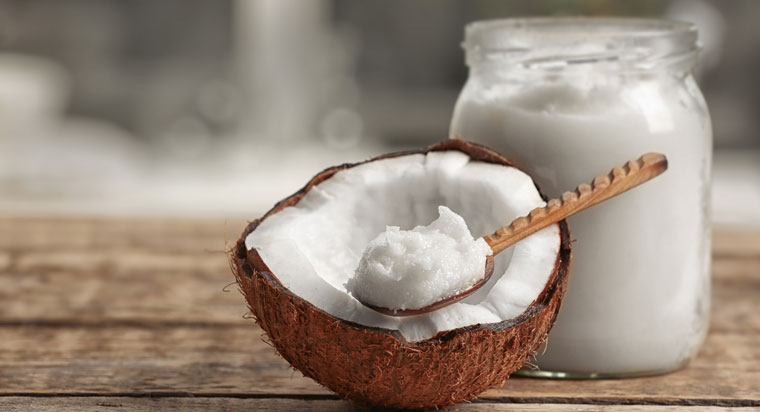Myths And Realities Of Coconut Oil

Answer a few questions and we'll provide you with a list of primary care providers that best fit your needs.
If we could believe everything we read on the internet, we’d embrace coconut oil as a wonder food that can conquer belly fat, curb your appetite, prevent heart disease, make your immune system strong, and protect your brain from dementia and Alzheimer’s disease.
In reality, the Alzheimer’s Association states that there is no credible evidence that coconut oil helps with the effects of Alzheimer’s disease.
And those who tout coconut oil’s heart-healthy properties are in direct opposition
to health experts. The American Heart Association (AHA) has issued a strong advisory to limit consumption of coconut oil and other foods high in saturated fat.
We know that cholesterol and heart disease have a strong association, and cholesterol has a connection to diet.
We also know that saturated fats are bad for the heart. They raise your LDL (low-density lipoprotein cholesterol levels). As a result, they increase your risk of developing heart disease.
Coconut oil is about 80 to 90 percent saturated fat. By comparison, butter is 63 percent saturated fat, beef fat is 50 percent, and pork lard is 39 percent. Olive oil and canola oil have less than 15 percent saturated fat.
And those who tout coconut oil’s heart-healthy properties are in direct opposition to health experts.
One tablespoon of coconut oil contains about 120 calories and 14 grams of fat – that’s around the daily limit of fat grams recommended for people who have or are at risk for heart disease.
Although studies have shown that people from India, the Philippines, and Polynesia, who include coconut in their diets, have low rates of heart disease, other aspects of their diets and lifestyles are more likely to contribute to their heart health. Plus, the coconut they eat is not processed as it is in most U.S. coconut oil products.
Focusing On the Positive
As an alternative to saturated fats, try monounsaturated fats including olive and avocado oils, and polyunsaturated fats including canola, peanut, corn oil, and soybean oils.
If you need further motivation to choose these healthier fats, switching from saturated fats to mono- and polyunsaturated fats in your diet can lower LDL cholesterol and the risk of heart disease by as much as 30 percent. That’s the same benefit of taking statins — a type of medicine commonly prescribed to lower cholesterol and risk of blocked arteries and heart attacks.
Trading bad fat for bad carbs doesn’t reduce cardiovascular disease. You wouldn’t tell people, ‘Hey, reduce your saturated fat and replace it with sugary soft drinks or donuts and refined carbohydrates like white bread and pasta.’ You’d tell them to replace it with unsaturated oils, whole wheat bread, grains, vegetables, nuts, or beans.
As for coconut oil, it has other beneficial uses. It’s an effective moisturizer for your skin and hair. You can apply it directly to skin and scalp. It also can be useful as a natural treatment for head lice and is a primary ingredient in the non-toxic shampoo for lice treatment called Paramide Plus Coconut Oil Emulsion.
Answer a few questions and we'll provide you with a list of primary care providers that best fit your needs.
Sources: Harvard School of Public Health; NutritionFacts.org




